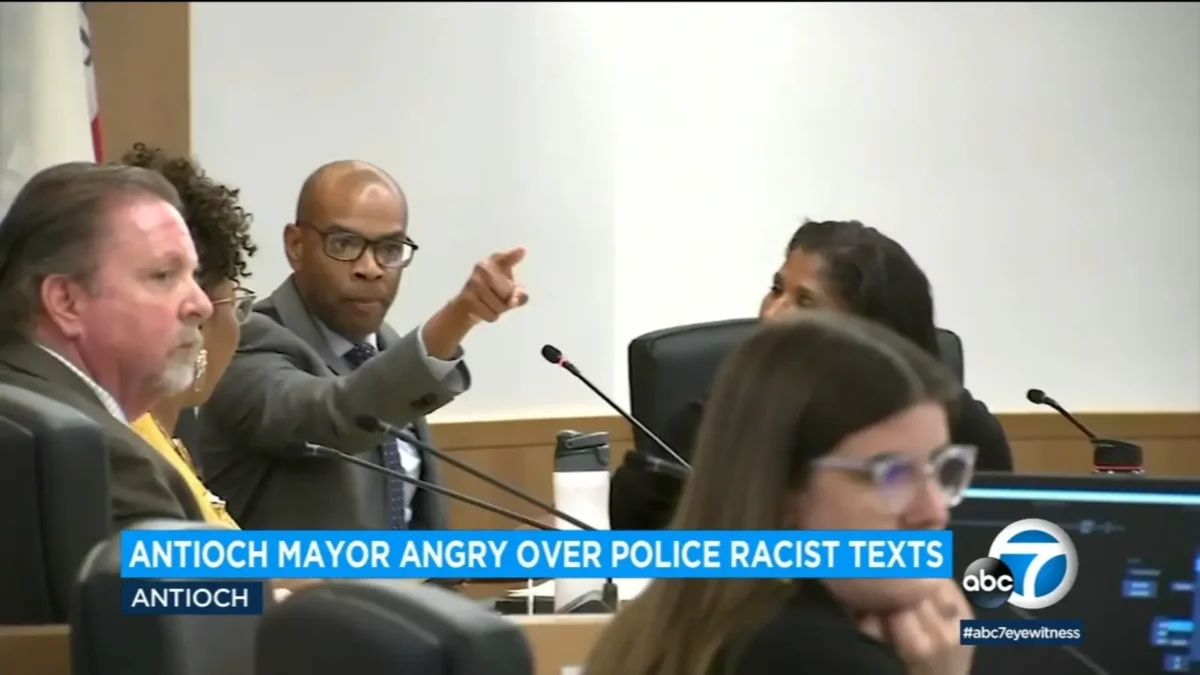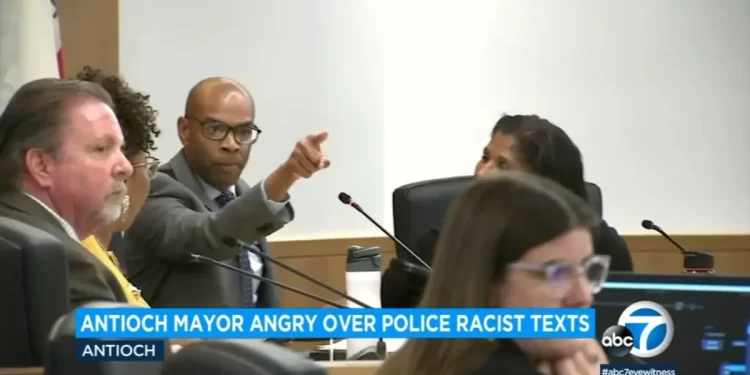Authorities in the San Francisco Bay Area have opened an investigation after a social media post called for bringing back “hangings in town square” to “fix Antioch right up” — coming just one year after city police officers faced intense scrutiny for participating in online chatrooms where racist and homophobic messages were exchanged.
Interim Antioch Police Chief Brian Addington announced this week that investigators are looking into the recent social media comments as potential criminal or terrorist threats but would not elaborate.
“It’s an open investigation. So, we are not gonna comment further on it,” Addington said, according to the San Jose Mercury News. “It should be wrapped up within a couple of weeks at most.”


The latest probe comes amid persistent racial tensions in the greater community while Antioch’s police force continues to confront issues of bigotry and extremism within its ranks.
Addington stated that once the investigation is complete, the case will be referred to the Contra Costa County District Attorney’s Office for review to determine whether charges will be filed against any individuals found to have violated the law.
The post, allegedly from a man claiming to reside in nearby Oakley, was first brought to the city’s attention during the Aug. 27 City Council meeting.
Resident Nicole Arrington raised the issue, addressing the council and later providing screenshots of the post to officials, including Addington.
She stated that the remarks were part of a broader pattern of “vile, racist, and hateful” comments directed at Black members of the council and city staff.
“Us calling out the truth doesn’t make us racists. We are not running around saying, ‘We hate people,’ or, ‘Somebody should be hung’ … we are not going to start talking about hanging,” Arrington said. “We are people of love; we don’t run around hating, hurting, or talking about hurting people.
“But if you keep talking about hurting people and making terrorist threats, then it might be a problem,” she continued.
The latest incident follows the vandalism of one of Mayor Lamar Hernandez-Thorpe’s campaign signs, where someone defaced the image by adding a clown wig and nose to his face and removing “Hernandez” from his name.
Earlier this year, Hernandez-Thorpe legally added “Hernandez” to his surname, following a successful petition to the county court, as a tribute to the Mexican immigrants who raised him.
Racial tensions in Antioch, a city of 115,000, have simmered for years, fueled by the doubling of the Black population over the past two decades, while the white demographic has dwindled to just more than a third of the city’s residents.
In 2020, Antioch voters made history by electing three Black members to the five-person City Council. However, this milestone was overshadowed when the city’s police force became embroiled in a scandal involving racist text messages, where officers used derogatory slurs against people of color, including against then-Chief Steven Ford.
Out of the department’s 88 officers, about half were found to have received racist, homophobic, and sexist texts.
Following the investigation, 17 of the officers were placed on leave, some resigned, and others remained on the force but not in public-facing roles.
Among them, three officers still face charges as part of an alleged conspiracy to assault Black residents for sport and are scheduled to stand trial later this year.
Councilmember Tamisha Torres-Walker described the “hanging” comment as “outrageous,” underscoring it as a stark reminder of the deep-seated hostility lying beneath the surface of the community.
Days before a recent council meeting, Torres-Walker drew attention to a troubling find she made on social media: a highway sign near Concord boldly declaring, “Not White, Not Welcome.”
“I’ve always said I’m not as worried about those who are loud and vocal. Their bigotry is clear. I’m more concerned about the people who aren’t saying anything but listening to all these things,” she said, according to the newspaper. “It’s a bold thing to say publicly, but I’m glad people are saying it publicly because you know who they are.”
A recent council meeting was fraught with racial tensions as the council voted to appoint a Black woman, Bessie M. Scott, as Antioch’s new city manager.
The move sparked an uproar among some residents, who zeroed in on Scott’s social media history, which they claimed included discussions of systemic racism and social constructs that favor one race over another.
In the council chambers, tensions flared much like they did last year when the racist text messages from police officers first came to light.
During that uproar, Mayor Hernandez-Thorpe found himself the target of a disturbing threat within the texts — an officer had suggested he’d offer a prime rib dinner to anyone who shot the mayor with a sponge bullet, referring to the nonlethal rounds officers sometimes use during raids.
At the time, Atlanta Black Star reported that Thorpe called for a special meeting to discuss the text messages, but the talks ended abruptly with yelling and finger-pointing.
At one point during the meeting, Hernandez-Thorpe snapped at one of his constituents, saying he was “disgusted” by the racial disharmony that remained pervasive throughout the city.
“I am sick and tired of being attacked by these people in this community apologizing for the racism going on in this community,” Hernandez-Thorpe steamed, adding, “You’re the problem! You’re the problem!”
At one point, the mayor seemed to challenge the man to step outside for a fistfight, saying, “You want to go outside? Let’s go!”
Last year, the texting investigation became part of a broader probe by the FBI and the Contra Costa County District Attorney’s Office, which had been examining corruption across various Bay Area police departments since 2019.
The latest council meeting mirrored the texting conflict, erupting into a heated exchange as emotions boiled over once again.
At the Aug. 27 meeting, as the debate over Scott’s hiring grew increasingly heated, Antioch resident Erika Raulston, who is Black, experienced a chilling moment that left her hair standing on end.
From behind her, she said, a woman’s voice cut through the din with a searing accusation: “You guys are the problem; you guys are racist,” the stranger’s voice nagged.
“I turned around and said, ‘no,’ ” Raulston recounted. “When I turned back, I heard her call me a ‘racist b—-.’ ”
From there, Raulston said the woman had the audacity to ask if she wanted “to take matters outside.’”
Raulston recounted that she didn’t follow the woman out the door, heeding her mother, Leslie May, who had “snatched” her arm and cautioned that she could go to jail.







